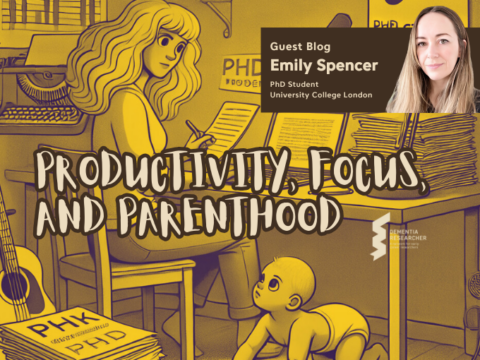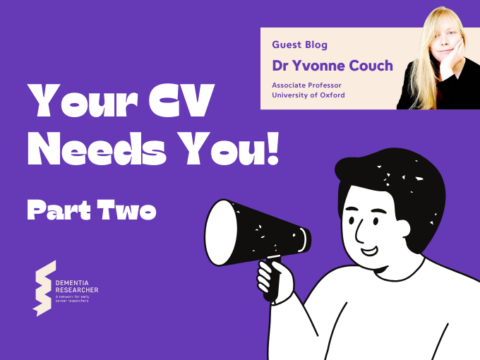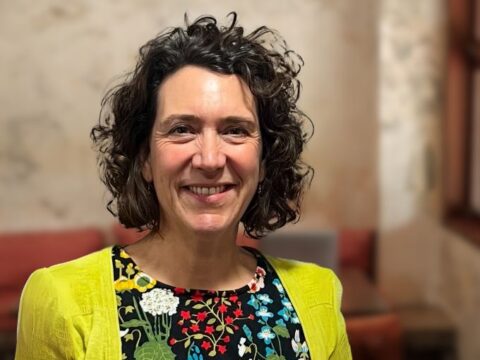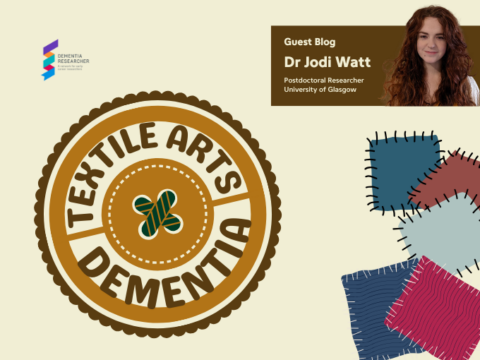When I first embarked on my clinical career there was a general feeling that should a person have a diagnosis of dementia then there was very little we could do to support their communication at all. At the time I trained as a speech and language therapist (I am revealing my age now eek) between 1998-2002 our lectures focused on rehabilitation for stroke related aphasia and cognitive disorders related to right hemisphere stroke. Dementia did not really feature. Yet people with dementia and their families are not experts in communication and it seems unrealistic to expect them just to get on with things without some kind of support and guidance.

Since the late 90s there has been a plethora of research evidence demonstrating the effectiveness of non-pharmacological interventions.
I have often met people with dementia or their families after their diagnosis (be it months or years) and they report they were advised ‘there is nothing we can do’ (in the words of one of my patients) or ‘we were been abandoned’ in the words of the wives of one of my patients. It is not uncommon that people receive their diagnosis of dementia and are then left to get on with their lives with little guidance unless things go wrong.
Thankfully things are changing. Since the late 90s there has been a plethora of research evidence demonstrating the effectiveness of non-pharmacological interventions, such as speech and language therapy, for people with dementia. And excitingly this literature demonstrates that there is so much we can do! Nevertheless, this research remains quite ‘young’ and there only a few systematic reviews describing the effectiveness of these interventions. Systematic reviews bring together lots of research studies on the same subject and combine and compare studies to give more power to the outcomes of the research (basically adding together the results of different studies that do similar things to make the numbers bigger and therefore stronger). Systematic reviews are a really useful way of getting together all the research we have to show the progress in an area. In the last few years there has now been enough research done to allow for these types of systematic reviews. Here is a bit of an overview of some of these areas:
 Cognitive Stimulation Therapy (CST):
Cognitive Stimulation Therapy (CST):
CST is a psychological intervention typically delivered over 12 weeks, twice a week in a group (individual CST programmes have also been developed now) by a psychologist, occupational therapist, nurse or speech and language therapist. The activities and discussions focus on areas including orientation, singing, exploring objects and playing word games. A systematic review in 2013 by Aguirre et al found 94 studies, 15 of which were randomised controlled studies (where people are randomly assigned to have CST or something else and results are compared- this is considered the gold standard to rigorous research). The research showed a consistent benefit to cognitive function, that was maintained a few months after having had the therapy.
 Exercise for dementia:
Exercise for dementia:
A review published in 2015 by Forbes et al examined the effectiveness of exercise for people with dementia and identified 17 trials. They found the exercise described was really different across all studies in terms of how much, how often and what was actually done. This, amongst other things, meant it was quite difficult to compare the studies. What they did find however, was that people who participated in exercise were more able to complete their activities of daily living (dressing, washing, preparing their meals etc).
 Education for carers:
Education for carers:
Education is quite a broad term but is incredibly valuable. In 2017 Dickinson et al found 31 other systematic reviews which they reviewed on psychosocial support for carers. They found these interventions were all quite different, but had in common education and a therapeutic component, and were often delivered as part of or in combination with a support group. Results demonstrated a positive impact on the wellbeing of carers and people with dementia, and even supported people to live at home for longer. This is an incredibly powerful result.
 Word practice:
Word practice:
Often people with dementia experience difficulties thinking of words, for some this can be one of the main difficulties. In 2013 a systematic review by Carthrey-Goulart et al identified 31 papers on doing word or language exercises to help maintain words for people with dementia, specifically primary progressive aphasia (the language led dementias). In 2014 Jokel et al wrote review of this literature and summarised factors that contributed to success when practicing naming words such as linking words to word meanings or linking words to word sounds depending on what was difficult for the individual.
 Day to day communication in real life:
Day to day communication in real life:
In reality people need to communicate with their loved ones, with their friends and at the shops or in the community. They and their families often come to speech and language therapy asking for advice on how to have a conversation, or how to read a recipe. A more recent review in 2020 summarises 19 studies focusing on exactly these real life, functional communications skills and therapy approaches that can help. The studies had in common that they all worked on refining strategies people were already using, and included a communication partner (usually a spouse of family member) in the therapy.
When people ask me about what we can do for people with dementia, I now talk about a ‘toolbox’, a ‘buffet’ or a ‘plethora’ of options that we have, that are underpinned by research evidence. I also emphasise, however ,that one size doesn’t fit everyone and that the most important bit of working with people with dementia and their families is probably sitting down and listening to what they need. Evidence based practice is based on what the research says, our clinical knowledge as experienced therapists who have been doing this for years and what the person actually needs. In other words there a arrange of interventions at our fingertips we just need to work out with the person what suits them.
If you follow a path into dementia research, your could play a role in testing or developing new interventions that could help people living with dementia or carers or perhaps play a role in understanding what drugs could help help people, or new and better ways to diagnose the disease early. There really are so many different ways you could help, I hope you are inspired to join us.
Author
Dr Anna Volkmer is a Speech and Language Therapist and researcher in Language and Cognition, Department of Psychology and Language Sciences, University College London. Anna is researching Speech and language therapy interventions in language led dementia and was once voted scariest speech and language therapist (even her children agree).
References
-
Aguirre, E., Woods, R. T., Spector, A., & Orrell, M. (2013). Cognitive stimulation for dementia: a systematic review of the evidence of effectiveness from randomised controlled trials. Ageing research reviews, 12(1), 253-262.
-
Carthery-Goulart, M. T., Silveira, A. D. C. D., Machado, T. H., Mansur, L. L., Parente, M. A. D. M. P., Senaha, M. L. H., … & Nitrini, R. (2013). Nonpharmacological interventions for cognitive impairments following primary progressive aphasia: a systematic review of the literature. Dementia & Neuropsychologia, 7(1), 122-131.
-
Dickinson, C., Dow, J., Gibson, G., Hayes, L., Robalino, S., & Robinson, L. (2017). Psychosocial intervention for carers of people with dementia: What components are most effective and when? A systematic review of systematic reviews. International Psychogeriatrics, 29(1), 31-43.
-
Forbes, D., Forbes, S. C., Blake, C. M., Thiessen, E. J., & Forbes, S. (2015). Exercise programs for people with dementia. Cochrane Database of Systematic Reviews, (4).
-
Jokel, R., Graham, N. L., Rochon, E., & Leonard, C. (2014). Word retrieval therapies in primary progressive aphasia. Aphasiology, 28(8-9), 1038-1068.
-
Volkmer, A., Spector, A., Meitanis, V., Warren, J. D., & Beeke, S. (2020). Effects of functional communication interventions for people with primary progressive aphasia and their caregivers: a systematic review. Aging & mental health, 24(9), 1381-1393.

 Print This Post
Print This Post





